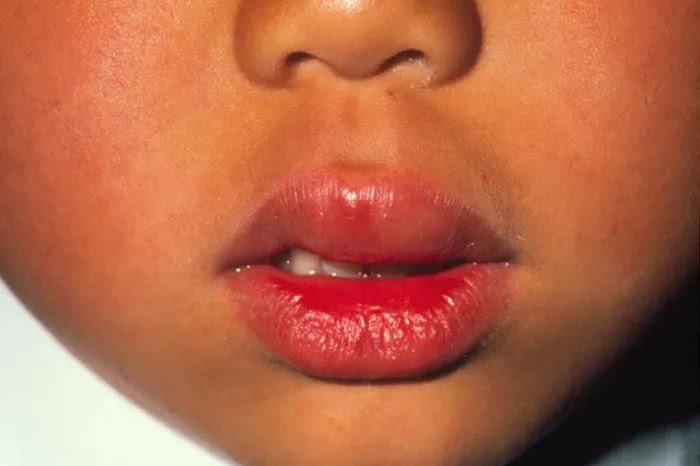Allergic rhinitis, commonly known as hay fever, is a prevalent allergic condition characterized by inflammation of the nasal passages in response to allergens such as pollen, dust mites, pet dander, or mold. Symptoms of allergic rhinitis include sneezing, nasal congestion, runny nose, itching of the nose and eyes, and postnasal drip. While allergic rhinitis is not life-threatening, it can significantly impact quality of life and daily functioning if left untreated. In this article, we’ll explore the various medications available for managing allergic rhinitis and discuss factors to consider when determining the best treatment approach.
Understanding Allergic Rhinitis: Causes and Symptoms
Before delving into medication options, it’s essential to understand the underlying causes and symptoms of allergic rhinitis:
Causes: Allergic rhinitis occurs when the immune system overreacts to harmless substances in the environment, triggering an inflammatory response in the nasal passages. Common allergens that can trigger allergic rhinitis include pollen, dust mites, pet dander, mold spores, and certain foods.
Symptoms: Symptoms of allergic rhinitis can vary in severity and may include sneezing, nasal congestion, runny nose (rhinorrhea), itching of the nose and eyes, watery eyes, and postnasal drip. These symptoms can range from mild to severe and may occur seasonally (e.g., during pollen seasons) or year-round (perennial allergic rhinitis).
Level 1: Medication Options for Allergic Rhinitis
Managing allergic rhinitis typically involves a combination of medications and allergen avoidance strategies. Medications for allergic rhinitis can be classified into several categories, including antihistamines, decongestants, intranasal corticosteroids, nasal anticholinergics, and leukotriene modifiers. Each medication class works through different mechanisms to alleviate symptoms and improve quality of life for individuals with allergic rhinitis.
Level 2: Exploring Medication Classes
Antihistamines:
Antihistamines are a commonly used class of medications for relieving symptoms of allergic rhinitis. They work by blocking the effects of histamine, a chemical released by the immune system in response to allergen exposure. By inhibiting histamine activity, antihistamines help reduce sneezing, itching, and nasal congestion.
Decongestants:
Decongestants work by constricting blood vessels in the nasal passages, leading to reduced swelling and congestion. They are often used to relieve nasal congestion associated with allergic rhinitis. Decongestants are available in oral formulations (e.g., pseudoephedrine) and nasal sprays (e.g., oxymetazoline), but prolonged use of nasal decongestant sprays can lead to rebound congestion and should be avoided.
Intranasal Corticosteroids:
Intranasal corticosteroids are considered first-line treatment for moderate to severe allergic rhinitis. They work by reducing inflammation in the nasal passages, thereby alleviating symptoms such as nasal congestion, runny nose, and sneezing. Intranasal corticosteroids are available by prescription and over-the-counter and are generally safe and well-tolerated when used as directed.
Nasal Anticholinergics:
Nasal anticholinergics, such as ipratropium bromide, work by blocking the action of acetylcholine, a neurotransmitter that stimulates nasal secretions. They are particularly effective for relieving symptoms of rhinorrhea (runny nose) associated with allergic rhinitis.
Leukotriene Modifiers:
Leukotriene modifiers, such as montelukast, work by blocking the action of leukotrienes, inflammatory mediators that contribute to allergic inflammation. They are typically used as adjunct therapy in individuals with allergic rhinitis and asthma or those who do not respond adequately to other medications.
Level 3: Choosing the Best Medication
When determining the best medication for allergic rhinitis, several factors should be considered, including the severity of symptoms, individual preferences, comorbidities, and potential side effects. A comprehensive treatment approach may involve a combination of medications tailored to address specific symptoms and needs. Here are some considerations to keep in mind when selecting medication for allergic rhinitis:
Symptom Severity: The choice of medication may vary depending on the severity and nature of symptoms. For mild symptoms, over-the-counter antihistamines or intranasal corticosteroids may be sufficient, while moderate to severe symptoms may require prescription-strength intranasal corticosteroids or combination therapy.
Allergen Exposure: Identifying and minimizing exposure to allergens is an essential component of managing allergic rhinitis. In addition to medications, allergen avoidance strategies such as using air purifiers, minimizing outdoor activities during high pollen seasons, and keeping indoor environments clean can help reduce symptom severity.
Medical History: Individuals with certain medical conditions or comorbidities may need to exercise caution when selecting medications for allergic rhinitis. For example, patients with cardiovascular disease or hypertension should avoid oral decongestants due to their potential to raise blood pressure.
Side Effects: Each medication class has its own set of potential side effects, ranging from mild to severe. Common side effects of antihistamines include drowsiness, dry mouth, and dizziness, while intranasal corticosteroids may cause nasal irritation or nosebleeds. It’s essential to discuss potential side effects with a healthcare provider and weigh the risks and benefits of treatment.
Individual Preferences: Some individuals may have preferences regarding the route of administration (oral vs. nasal), frequency of dosing, or convenience of use when selecting medication for allergic rhinitis. Factors such as ease of use, cost, and availability may influence treatment decisions and adherence to therapy.
Conclusion: Tailoring Treatment for Allergic Rhinitis
In conclusion, managing allergic rhinitis requires a comprehensive approach that addresses symptoms, minimizes allergen exposure, and considers individual patient factors. While there is no one-size-fits-all approach to treatment, a variety of medications are available to help alleviate symptoms and improve quality of life for individuals with allergic rhinitis. By working closely with healthcare providers and implementing personalized treatment plans, individuals can find relief from allergic rhinitis and enjoy improved respiratory health and well-being.
[inline_related_posts title=”You Might Be Interested In” title_align=”left” style=”list” number=”6″ align=”none” ids=”6121,6118,6115″ by=”categories” orderby=”rand” order=”DESC” hide_thumb=”no” thumb_right=”no” views=”no” date=”yes” grid_columns=”2″ post_type=”” tax=””]


































